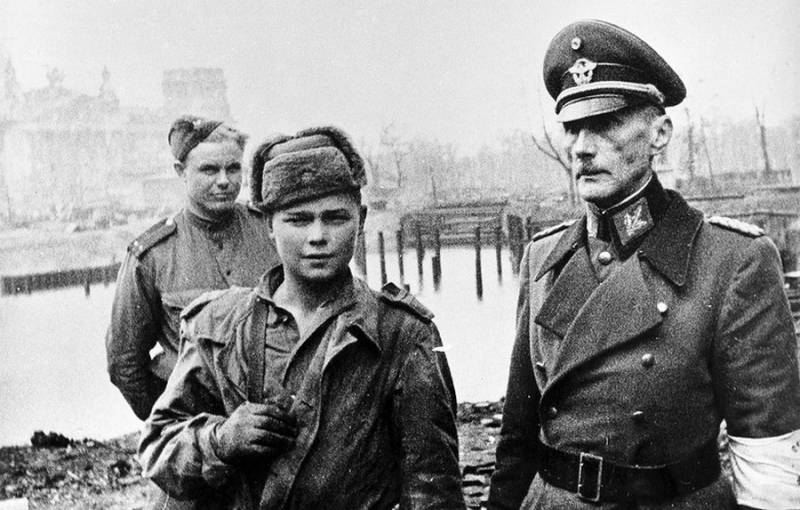What nicknames did Russians and Germans exchange
The peoples living in the neighborhood inevitably exchange nicknames. They can be different: friendly and offensive, respectful and contemptuous, ironic and silly. But all of them are united by one thing - they reflect the ideas of some peoples about others.
Russians are no exception. They themselves often nicknamed other nations, and received them from their neighbors.
The first such famous nickname in history was “barbarians”. The ancient Romans, who considered themselves superior to any other peoples known to them, called them barbarians. They did not understand the speech of the Germans, Celts, Scythians and other peoples. It seemed to them that they were muttering some kind of “war-war-war”, for which they called them barbarians. And all in a row, except for yourself.
Russians followed the path of these ancient peoples. All Europeans who came to Russia, they began to call the Germans. There was no arrogance in this, they simply believed that foreigners could not speak, they were dumb. When a foreigner was asked a question, he was silent and showed with signs that he did not understand how deaf and dumb. Originally so called not only Germans, but also Dutch, English and many others. And only later we began to call the Germans only visitors from Germany.
Some of the Germans who came to Russia founded their settlements. First, they settled in the Volga region and in Ukraine, then, by the will of the “best friend of athletes”, they came to Kazakhstan and Siberia. But probably the ancestors of some of them had nothing to do with Germany.
During World War I, the French began to call the Germans "Boschs." The Russians, who were allies of the French in that war, also adopted this nickname. It did not take root too much and was replaced by “Fritz”. These are two popular German names at once - Fritz and Friedrich. In a conversation between friends, Frederick was also often called Fritz.
In the Great Patriotic War, when we again had to fight, “odds” were added to the “Fritz”. Hans is also a fairly popular German name.
The Germans' imagination was more meager. Moreover, inventing a nickname for the Russians, they went our way, calling all Russians “Ivanes”. Apparently, we still have something in common in the mentality.
We had such an “interchange” with other nations. For example, Ukrainians became “Ukrainians” for us because of the characteristic hairstyle of the Cossacks of the Cossacks, who shaved their heads, leaving only a long forelock. In response, the Russians began to be called “katsapy,” which is consonant with the Ukrainian word “DAC,” meaning “goat.” Russians reminded these animals of the Ukrainians because of the beards that all men wore in Russia without exception, although not all of them were suitable.
In general, it doesn’t matter who calls whom. The main thing is to treat each other like good neighbors.
Russians are no exception. They themselves often nicknamed other nations, and received them from their neighbors.
The first such famous nickname in history was “barbarians”. The ancient Romans, who considered themselves superior to any other peoples known to them, called them barbarians. They did not understand the speech of the Germans, Celts, Scythians and other peoples. It seemed to them that they were muttering some kind of “war-war-war”, for which they called them barbarians. And all in a row, except for yourself.
Russians followed the path of these ancient peoples. All Europeans who came to Russia, they began to call the Germans. There was no arrogance in this, they simply believed that foreigners could not speak, they were dumb. When a foreigner was asked a question, he was silent and showed with signs that he did not understand how deaf and dumb. Originally so called not only Germans, but also Dutch, English and many others. And only later we began to call the Germans only visitors from Germany.
Some of the Germans who came to Russia founded their settlements. First, they settled in the Volga region and in Ukraine, then, by the will of the “best friend of athletes”, they came to Kazakhstan and Siberia. But probably the ancestors of some of them had nothing to do with Germany.
During World War I, the French began to call the Germans "Boschs." The Russians, who were allies of the French in that war, also adopted this nickname. It did not take root too much and was replaced by “Fritz”. These are two popular German names at once - Fritz and Friedrich. In a conversation between friends, Frederick was also often called Fritz.
In the Great Patriotic War, when we again had to fight, “odds” were added to the “Fritz”. Hans is also a fairly popular German name.
The Germans' imagination was more meager. Moreover, inventing a nickname for the Russians, they went our way, calling all Russians “Ivanes”. Apparently, we still have something in common in the mentality.
We had such an “interchange” with other nations. For example, Ukrainians became “Ukrainians” for us because of the characteristic hairstyle of the Cossacks of the Cossacks, who shaved their heads, leaving only a long forelock. In response, the Russians began to be called “katsapy,” which is consonant with the Ukrainian word “DAC,” meaning “goat.” Russians reminded these animals of the Ukrainians because of the beards that all men wore in Russia without exception, although not all of them were suitable.
In general, it doesn’t matter who calls whom. The main thing is to treat each other like good neighbors.

Information